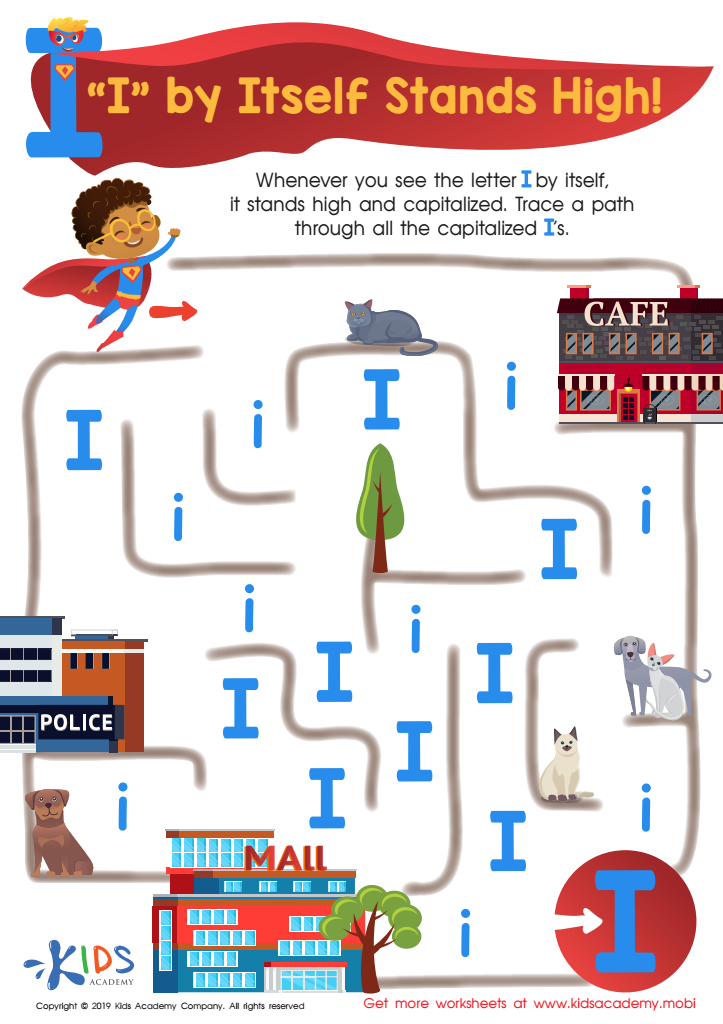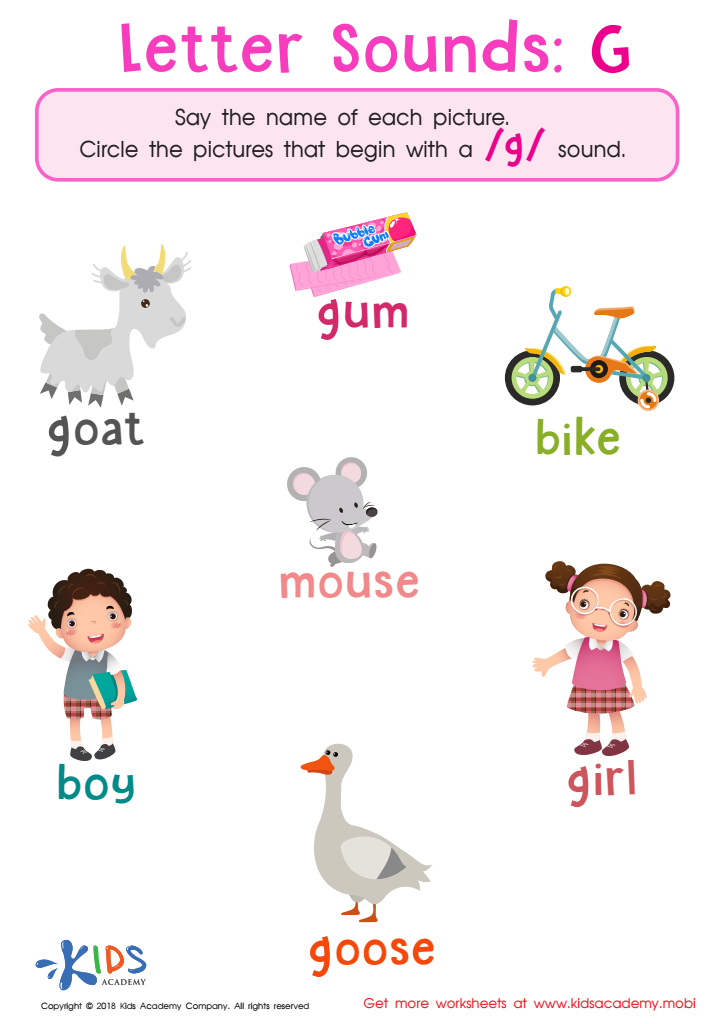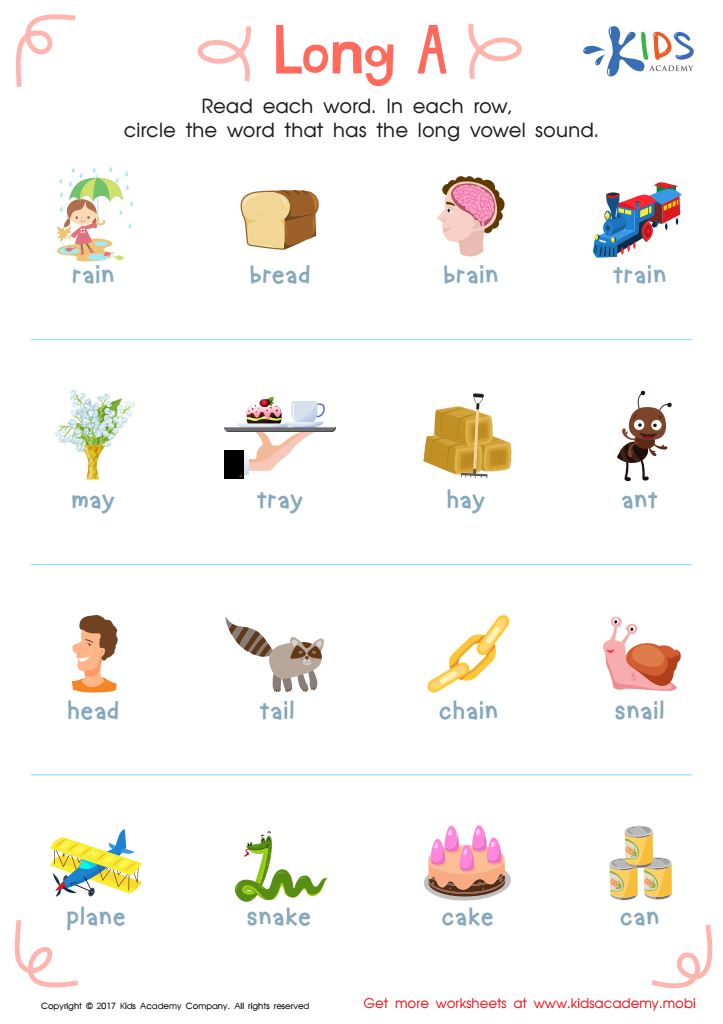Phonics improvement Normal Alphabet Worksheets for Ages 4-8
3 filtered results
-
From - To
Discover our Phonics Improvement Normal Alphabet Worksheets, specially designed for children ages 4-8. These engaging and educational worksheets focus on enhancing phonics skills, helping young learners to recognize letters, sounds, and improve their reading abilities. With a variety of fun activities, from tracing letters to interactive phonics exercises, these resources make learning enjoyable. They support the development of essential literacy skills and provide a solid foundation for future reading success. Perfect for parents and educators, our worksheets can be easily printed, allowing for flexible learning that can be tailored to each child's needs. Unlock your child's reading potential today!


I Stands High Worksheet


Letter G Sounds Worksheet
Phonics instruction is crucial for children aged 4-8 as it lays the foundation for reading and writing skills. At this early stage, children learn to connect sounds to letters, which enhances their ability to decode words. Parents and teachers should prioritize phonics improvement because mastering this skill unlocks access to the broader world of literacy, fostering confidence and a love for reading.
When children understand phonics, they can sound out unfamiliar words, making reading more accessible. This skill is essential for academic success across subjects, as reading proficiency directly correlates with overall learning outcomes. Phonics also supports spelling and writing, as children learn to recognize patterns in words.
Moreover, improved phonics skills can lead to reduced frustration and anxiety related to reading tasks, creating a more positive learning environment. As children experience success in reading, their self-esteem and motivation to learn can significantly increase.
Involving parents in phonics improvement activities at home — such as reading aloud and playing sound-related games — strengthens the child's learning experience. Ultimately, focusing on phonics equips children with essential tools for lifelong learning and communication, paving the way for their future academic and personal success.
 Assign to My Students
Assign to My Students















